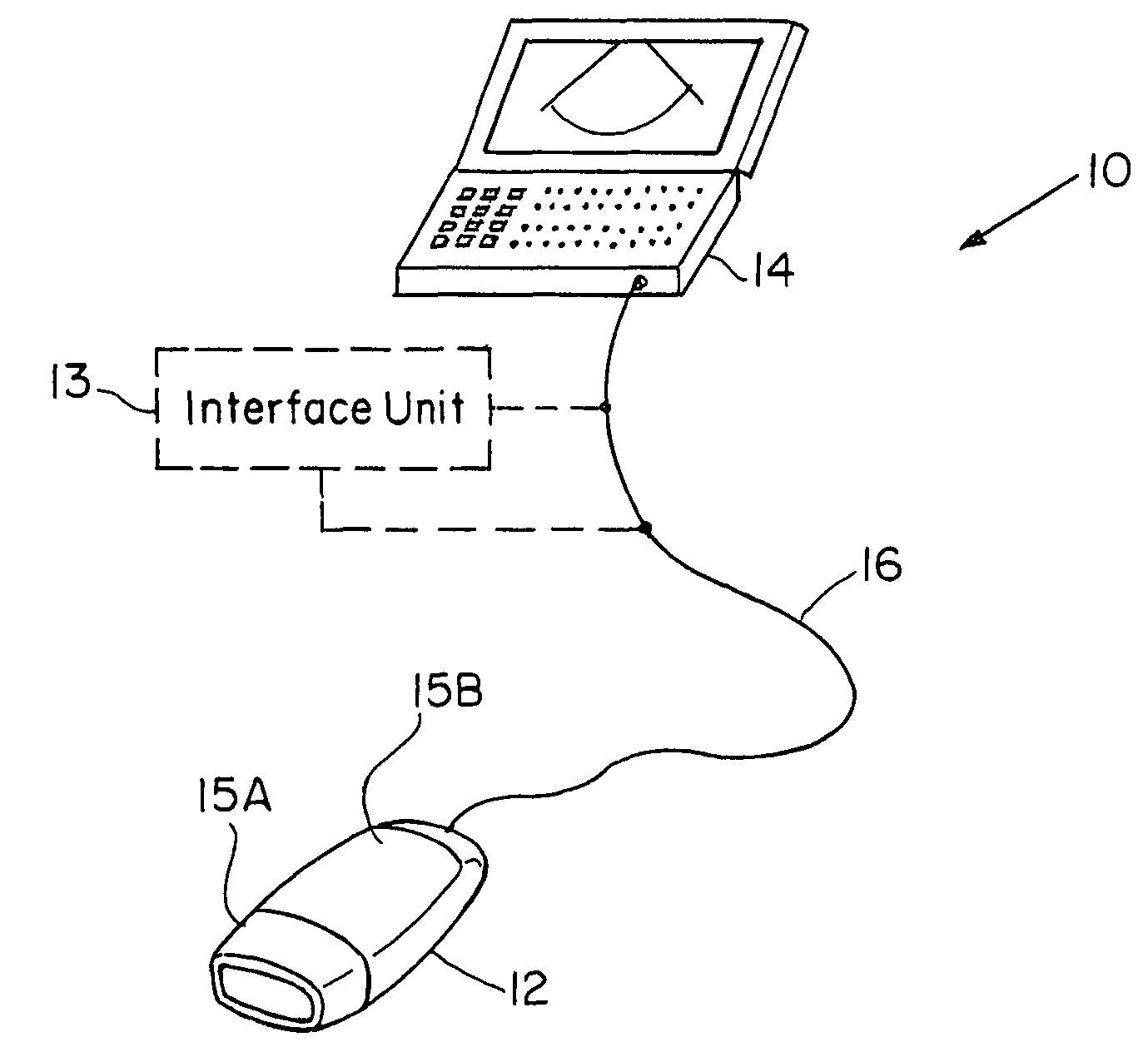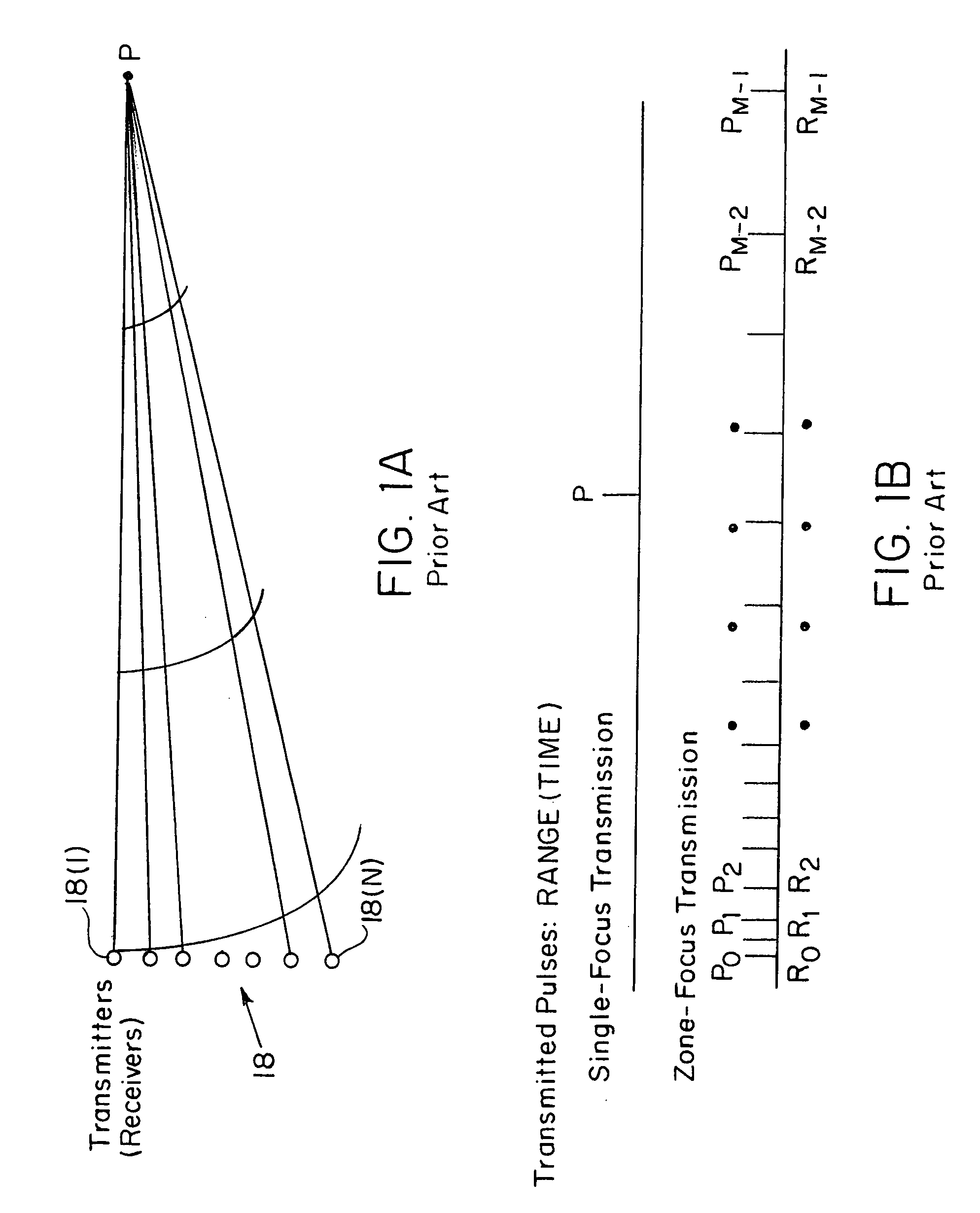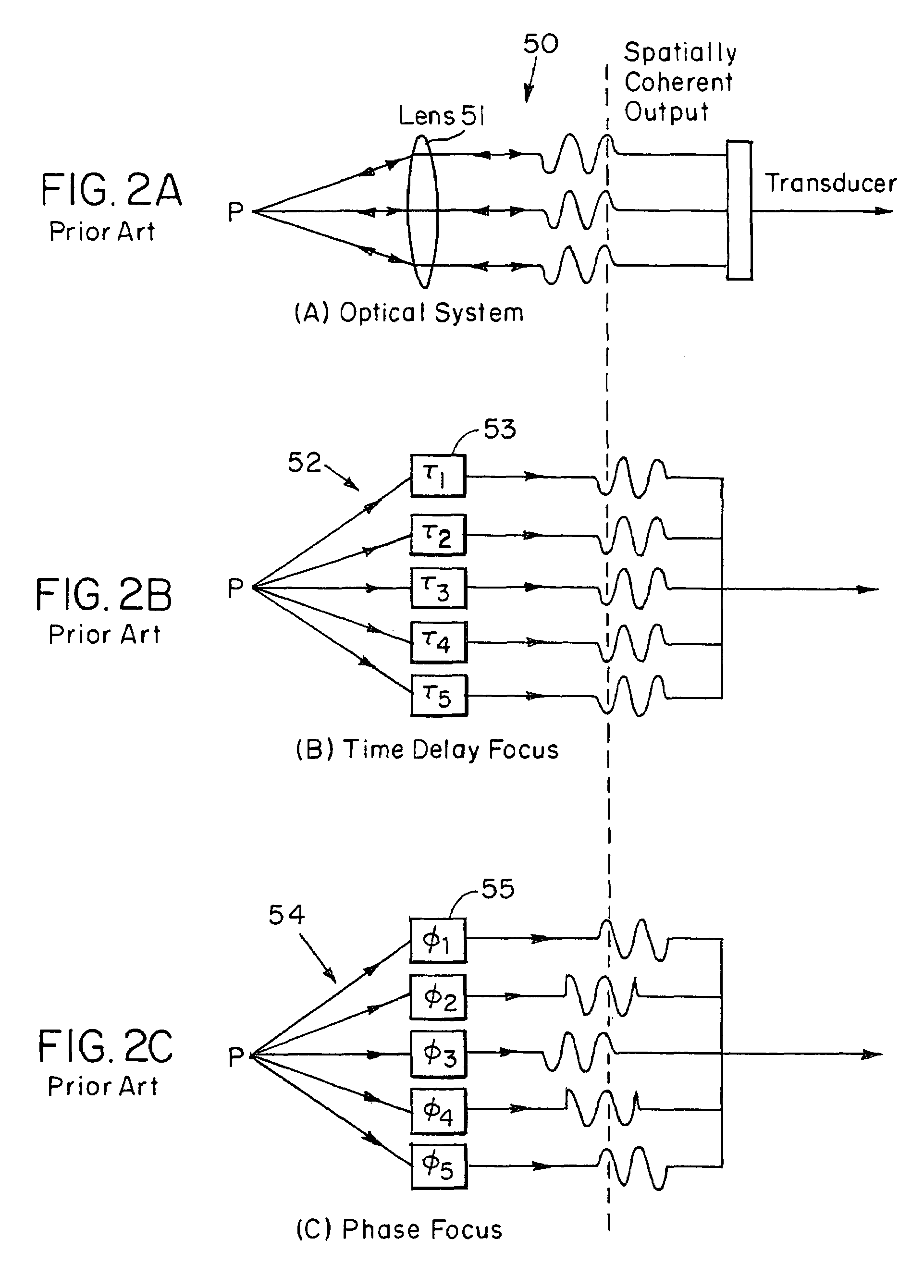Portable ultrasound imaging data
a technology of ultrasound imaging and data, applied in the field of portable ultrasound imaging data, can solve the problems of large microchip area, no prior art ultrasound imaging system utilizes the straightforward time-delay implementation, and the simple variable-speed clock generator has not been developed to date. achieve the effect of improving system performance, less complex and expensive, and substantially reducing signal loss
- Summary
- Abstract
- Description
- Claims
- Application Information
AI Technical Summary
Benefits of technology
Problems solved by technology
Method used
Image
Examples
Embodiment Construction
[0102]A description of preferred embodiments of the invention follows.
[0103]FIG. 3 is a schematic pictorial view of the ultrasound imaging system 10 of the present invention. The system includes a hand-held scan head 12 coupled to a portable data processing and display unit 14 which can be a lap-top computer. Alternatively, the data processing and display unit 14 can include a personal computer or other computer interfaced to a cathode ray tube (CRT) for providing display of ultrasound images. The data processor display unit 14 can also be a small, lightweight, single-piece unit small enough to be hand-held or worn or carried by the user. The hand-held display is less than 1000 cm3 in volume and preferably less than 500 cm3. Although FIG. 3 shows an external scan head, the scan head of the invention can also be an internal scan head adapted to be inserted through a lumen into the body for internal imaging. For example, the head can be a transesophogeal probe used for cardiac imaging...
PUM
 Login to View More
Login to View More Abstract
Description
Claims
Application Information
 Login to View More
Login to View More - R&D
- Intellectual Property
- Life Sciences
- Materials
- Tech Scout
- Unparalleled Data Quality
- Higher Quality Content
- 60% Fewer Hallucinations
Browse by: Latest US Patents, China's latest patents, Technical Efficacy Thesaurus, Application Domain, Technology Topic, Popular Technical Reports.
© 2025 PatSnap. All rights reserved.Legal|Privacy policy|Modern Slavery Act Transparency Statement|Sitemap|About US| Contact US: help@patsnap.com



